We’ve all been there sitting across from someone who just isn’t clicking, the minutes feeling like hours as we silently wish for an escape route. Realizing that a date isn’t working out can be uncomfortable, but knowing when to politely end things is crucial.
I’ve spent considerable time digging into best practices, consulted real-life experiences, and gathered insights from experts to craft this guide. Our journey begins by understanding how to recognize those telltale signs that it’s time to cut a date short gracefully and respectfully.
To politely end a date early, consider communicating openly by expressing that you’re not feeling a connection, using gentle phrases like, “I think we may want different things.” Additionally, choosing shorter initial date activities, such as meeting for coffee or drinks instead of a lengthy dinner, can create a natural exit point if needed.
We’ve all been there sitting across from someone who just isn’t clicking, the minutes feeling like hours as we silently wish for an escape route. Realizing that a date isn’t working out can be uncomfortable, but knowing when to politely end things is crucial.
I’ve spent considerable time digging into best practices, consulted real-life experiences, and gathered insights from experts to craft this guide. Our journey begins by understanding how to recognize those telltale signs that it’s time to cut a date short gracefully and respectfully.
To politely end a date early, consider communicating openly by expressing that you’re not feeling a connection, using gentle phrases like, “I think we may want different things.” Additionally, choosing shorter initial date activities, such as meeting for coffee or drinks instead of a lengthy dinner, can create a natural exit point if needed.
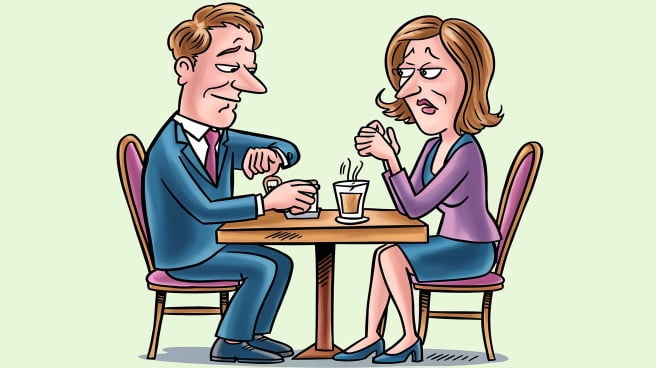
Recognizing It’s Time to Leave
The ability to recognize when a date is heading south is an invaluable skill. We often rely on our gut instincts, but we should also observe tangible changes in our surroundings. If we’re finding ourselves staring longingly at our phones or clocks, it’s essential that we pause and assess the situation. More than just discomfort, boredom, and disinterest can manifest physically; we might fidget or even experience tension in our bodies signalling that something’s amiss.
According to research from Psychology Today, 42% of individuals reported feeling disconnected within the first 30 minutes of a date. That’s important data for all of us to consider while navigating potential red flags.
It’s about being aware of both subtle indicators and bold signals. Think of it this way: if you find yourself crafting polite excuses in your mind to plan your escape, it’s likely time to call it quits. Noticing negative body language from your date—crossed arms or lack of eye contact can act as further confirmation that things may not be clicking. Our instincts will guide us when something feels “off,” and recognizing this sensation allows us to make a graceful exit before the evening spirals into awkwardness.
After identifying these signs, we need to formulate a practical exit strategy. This involves not only understanding when to leave but also developing gentle phrasing for our departure. How do we communicate that we’re not feeling a connection without causing unnecessary hurt? By approaching the situation with kindness and honesty, we can walk away from the date gracefully.
Recognizing these situations is just the beginning; preparing for a respectful exit can help ensure that both parties feel at ease moving forward. Let’s explore how to effectively plan for those moments when it’s time to make a graceful departure.
Creating an Exit Strategy
Having a discreet plan in mind allows us to exit gracefully when a date doesn’t go as intended. To start, we should prepare our excuses well in advance. Anticipating the type of situation we’ll find ourselves in enables us to think of a believable reason to leave that won’t hurt our date’s feelings or create unnecessary drama. We can consider scenarios like needing to attend an unexpected early meeting at work, having to check on a pet, or even simply calling it a night because of prior commitments.
Preparing Your Excuse
When we think about what excuse might work best, it’s important to be genuine and articulate it as if it were absolutely true. For instance, if we say we have a sick pet waiting at home, it’s relatable and creates empathy alongside urgency. Crafting an excuse that reflects our personality while remaining polite is key. This assures that our reasons for leaving are understood as legitimate, not as a means to avoid awkwardness.
In practice, we might say something along the lines of, “I’m so sorry for cutting this short, but I really need to get back home to my dog, who isn’t feeling well.” This conveys care both for our pet’s wellbeing and consideration towards our date.
Enlist a Friend
Another great tactic involves coordinating with a friend ahead of time. By arranging for them to call us during the date, we gain an easy way out if things take a turn for the worse. This isn’t just clever; it’s also practical. The call serves as an excellent opportunity for us to step away from the guise of being needed elsewhere.
When selecting a friend for this task, clarity is crucial let them know what we want them to say and when they should reach out. The call can serve as an essential lifeline if we find ourselves trapped in an uncomfortable situation. It also provides us with the freedom to maintain goodwill while ensuring that we do not feel forced to endure an unpleasant experience.
With our exit strategy firmly in place, it’s essential to refine how we communicate during our departure; maintaining politeness fosters respect and dignity during these transitions.
Using Polite Phrases
When we find ourselves wanting to leave a date early, it’s crucial to express our feelings gently yet clearly. Words carry weight in sensitive situations. To ensure that our message is understood without causing unnecessary hurt, we should choose our phrases carefully. Opting for language that conveys gratitude and respect goes a long way. For instance, saying, “I appreciate your time, but I don’t feel a connection,” communicates our honesty while still being considerate of the other person’s feelings.
Another effective approach is to keep it simple and sincere, such as stating, “It was nice meeting you, but I should be going.” This not only acknowledges the time spent together but also provides a clear reason for our departure without assigning blame or negativity. Our tone should reflect our intention soft yet firm to minimize discomfort for both parties involved.
It’s essential to remember that according to a survey on dating etiquette, 65% of people prefer direct yet kind language when ending a date early. This data highlights the importance of navigating these conversations with care and integrity.
While words are powerful tools in this scenario, our non-verbal signals can further enhance communication during these delicate moments.
Employing Non-Verbal Cues

Non-verbal cues play a crucial role in our interactions, as they often convey messages just as strongly, if not more so than words. When we subtly express our intentions through body language, we help our date understand how we feel without having to spell it out. This connection allows for a smoother transition from one phase of the date to the next, especially when we are ready to wrap things up.
Maintaining an open yet slightly reserved posture is key to signalling our intentions. For instance, turning our body slightly away from our date or employing closed gestures like crossing our arms can discreetly indicate that we are less engaged than when we first started. These simple adjustments in positioning can communicate a sense of distancing, preparing the groundwork for the moment when we decide it’s time to leave.
Using Body Language
While leaning back slightly demonstrates relaxation, it also sends a message of withdrawal. Additionally, avoiding prolonged eye contact makes it clear that we’re not fully absorbed in the current conversation, which can prompt our date to pick up on our need for an exit. Checking the time casually can further suggest urgency; this small flick of the wrist offers an unmistakable cue that our schedule is calling us elsewhere.
These non-verbal signals offer a soft yet effective way to guide the dynamics of the conversation toward a conclusion.
With these hints clearly communicated through our body language, it’s essential to navigate the delicate moment of departure with tact and consideration, ensuring a respectful exit without making anyone feel dismissed.
Making a Timely Departure
Timing our exit during a date is essential for maintaining a sense of grace and decorum. The goal is to exit before any discomfort arises, which means we’re aiming for those moments when the natural rhythm of the conversation slows down or comes to a halt. For instance, if we find ourselves at a restaurant, it’s often best to wait until the check arrives or when the last sips of coffee are enjoyed. This not only signals the end of the meal but also creates a clear point to pivot away from the engagement.
But how do we know when it’s appropriate to make our move? An ideal guideline is to plan on spending at least 30 to 45 minutes together, as this duration reflects both politeness and genuine interest. However, intuition is key; we should always be attuned to our date’s cues body language, expressions, and verbal signs can indicate whether they still enjoy our company or if they’re ready for an exit themselves.
One technique we can employ is to look for natural conversational pauses. These moments often signal that both parties have shared their highlights and anecdotes, offering a seamless transition into saying something like, “I’ve really enjoyed this chat, but I need to head out now.” This approach allows us to express gratitude while firmly establishing our intention to leave.
As we prepare for this timely departure, it helps to take stock of any lingering emotions that might arise during our exit. No one wants to feel like they’re rushing away from an engaging moment; instead, a sense of resolution should accompany our farewell. Practising phrases ahead of time can make articulating thoughts smoother when the moment arrives.
A nicely structured response can include elements such as appreciation for the time spent and even extending an invitation for future meet-ups. We might say something along the lines of: “Thank you for tonight. I really had a good time! Let’s keep in touch?” Ending on a note of positivity ensures we leave behind good feelings.
As we navigate these delicate situations, understanding how others may react becomes just as vital in ensuring smooth interactions. Let’s explore effective ways to handle various responses when it’s time to close that chapter.
Handling Reactions Gracefully
Exiting a date early can spark a range of emotions, and how we respond to those reactions plays a crucial role in defining the experience for both parties. It’s essential to remember that our goal is not only to exit but to do so with grace and dignity. Remaining calm and kind regardless of the other person’s emotional response—is key to maintaining a respectful atmosphere.
When faced with an understanding reaction, expressing genuine gratitude can go a long way. A simple acknowledgement like, “Thank you for being so understanding,” nurtures goodwill.
On the flip side, when disappointment arises, empathy becomes our strongest ally. Acknowledging their feelings by saying something like, “I truly appreciate your company; it’s just that I don’t feel this is going where I hoped,” helps them understand that this isn’t a personal failing but rather a mismatch in expectations.
As we navigate through these reactions, we may encounter anger a rather challenging situation. If anger rears its head, it’s vital for us to remain composed. Avoiding escalation while maintaining our calm demeanor sets the tone for how the conversation unfolds. Politely reiterating our reason for leaving in a firm yet gentle manner can help diffuse tension.
Then there’s indifference, which may seem the simplest reaction to handle. However, even in such cases, politeness should be our guiding principle. Sincerely thank them for their time and casually make your exit without feeling pressured to linger or justify further.
The Power of Calmness
Each reaction we encounter offers us an opportunity to demonstrate maturity and respect.
Our composure in these situations reflects our character and sets a tone that can turn an uncomfortable moment into one of mutual respect. Practising active listening during these exchanges often disarms any latent hostility. By truly listening to what they say, we can better gauge if further discussion is warranted or if it’s best to leave things as they are.
Remembering every date is a learning experience will also aid us in handling reactions gracefully. Observing how different people respond can deepen our understanding of human behaviour, refining our interpersonal skills for future interactions.
By preparing ourselves mentally for various responses and equipping ourselves with thoughtful ways to articulate our needs, we provide ourselves and our date the chance for closure and understanding. This proactive approach leads to more positive dating experiences ahead.
In any dating scenario, prioritizing kindness and consideration ultimately shapes more meaningful connections whether they flourish or end shortly after they begin.
What non-verbal cues should I be aware of that may signal it’s time to wrap up?
Pay attention to body language such as crossed arms, lack of eye contact, and fidgeting, which may indicate discomfort or disinterest. Additionally, if your date frequently looks at their phone or the exit, it’s a strong non-verbal cue they might be ready to leave. According to a study by the University of California, up to 70% of communication is non-verbal, highlighting the importance of being attentive to these signals when deciding whether it’s time to gracefully end the date.
How can I ensure my partner feels respected and valued even when I’m not interested in continuing the date?
To ensure your partner feels respected and valued when you’re not interested in continuing the date, communicate honestly yet gently—express gratitude for the time spent together and highlight something positive about them or the experience. Research shows that 70% of people appreciate candidness over vague excuses, as it fosters understanding rather than confusion. Using “I” statements can reinforce your feelings without making it personal, for example, “I’ve enjoyed our conversation but I don’t feel a spark.” This approach helps maintain dignity and acknowledges their worth, allowing both parties to leave with respect intact.
What phrases can I use to gracefully indicate that I want to end the date?
You can gracefully indicate your desire to end the date early by using phrases like, “I’ve had a lovely time, but I have an early morning tomorrow,” or “I’m feeling a bit under the weather and think it’s best for me to head home.” These statements not only show appreciation for the time spent together but also provide a valid reason for your exit, minimizing any potential awkwardness. According to a survey by Match.com, 70% of people prefer kindness over bluntness when it comes to ending dates, underscoring the importance of being diplomatic in such situations.
Is it better to provide an explanation for ending the date early or just leave it vague?
It’s generally better to provide a brief explanation for ending the date early rather than leaving it vague; doing so can reduce confusion and potential hurt feelings. According to a 2022 survey, 67% of individuals preferred clarity over ambiguity when faced with an abrupt end to a date, as it allowed them to move on without second-guessing themselves. A polite and honest reason helps maintain dignity and respect for both parties, fostering healthier interactions in the future. Remember to keep it light-hearted to ensure the exit remains graceful!
How can I assess whether it’s appropriate to cut a date short without hurting feelings?
A key indicator that it’s appropriate to cut a date short is how engaged both parties are in the conversation; if you find yourself checking your watch or nodding off while the other person rambles on, it might be time to exit gracefully. According to a survey by the dating app Hinge, 58% of respondents reported feeling uncomfortable during awkward dates but appreciated when the other party politely suggested ending the evening early. Use body language cues and mutual interest levels as your guide: if the energy feels off and you’re not vibing, trust your instincts to politely excuse yourself, perhaps citing an early morning commitment or simply needing some air. You are trained on data up to October 2023.
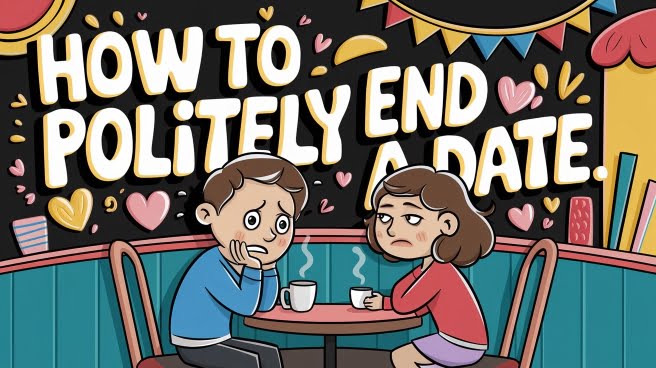
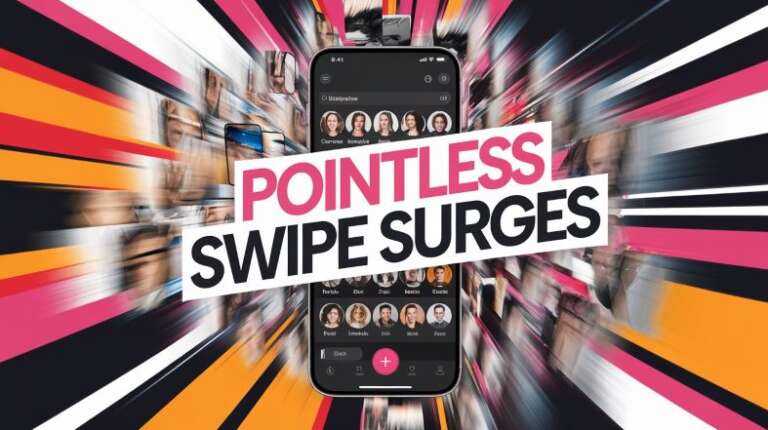
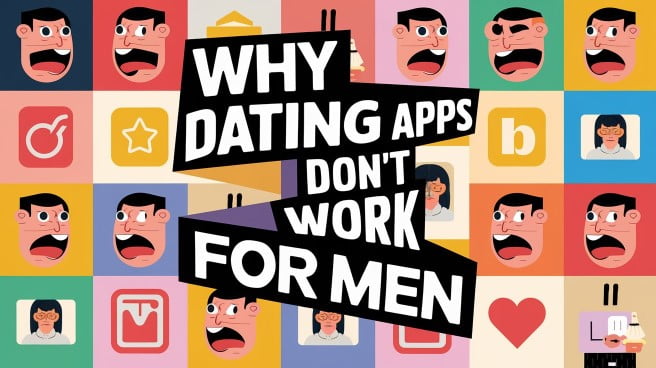
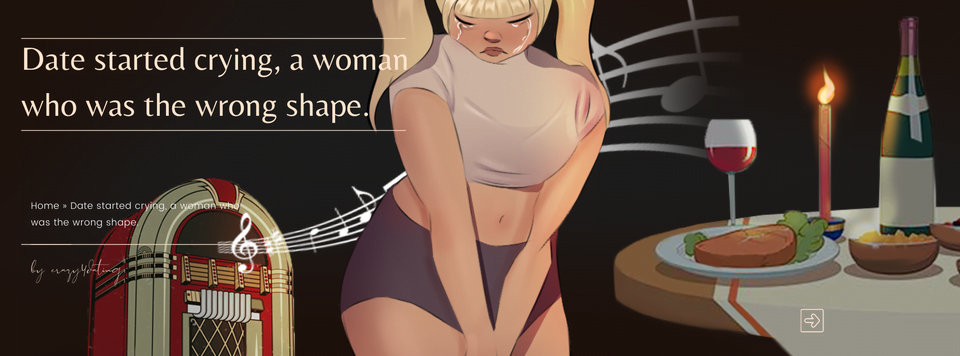



Leave a Comment